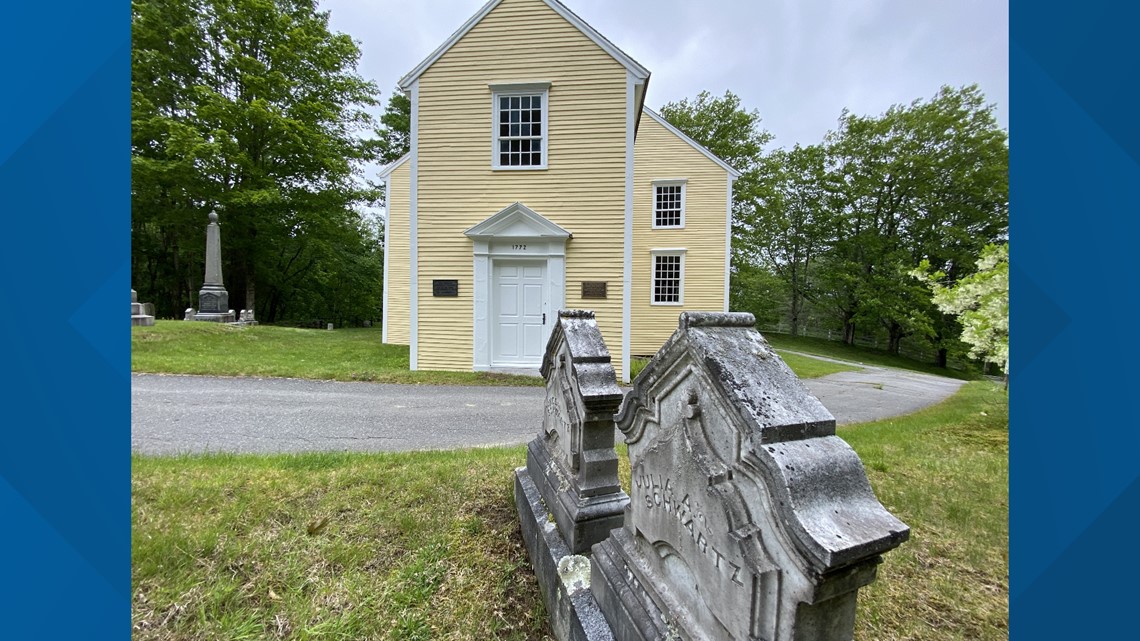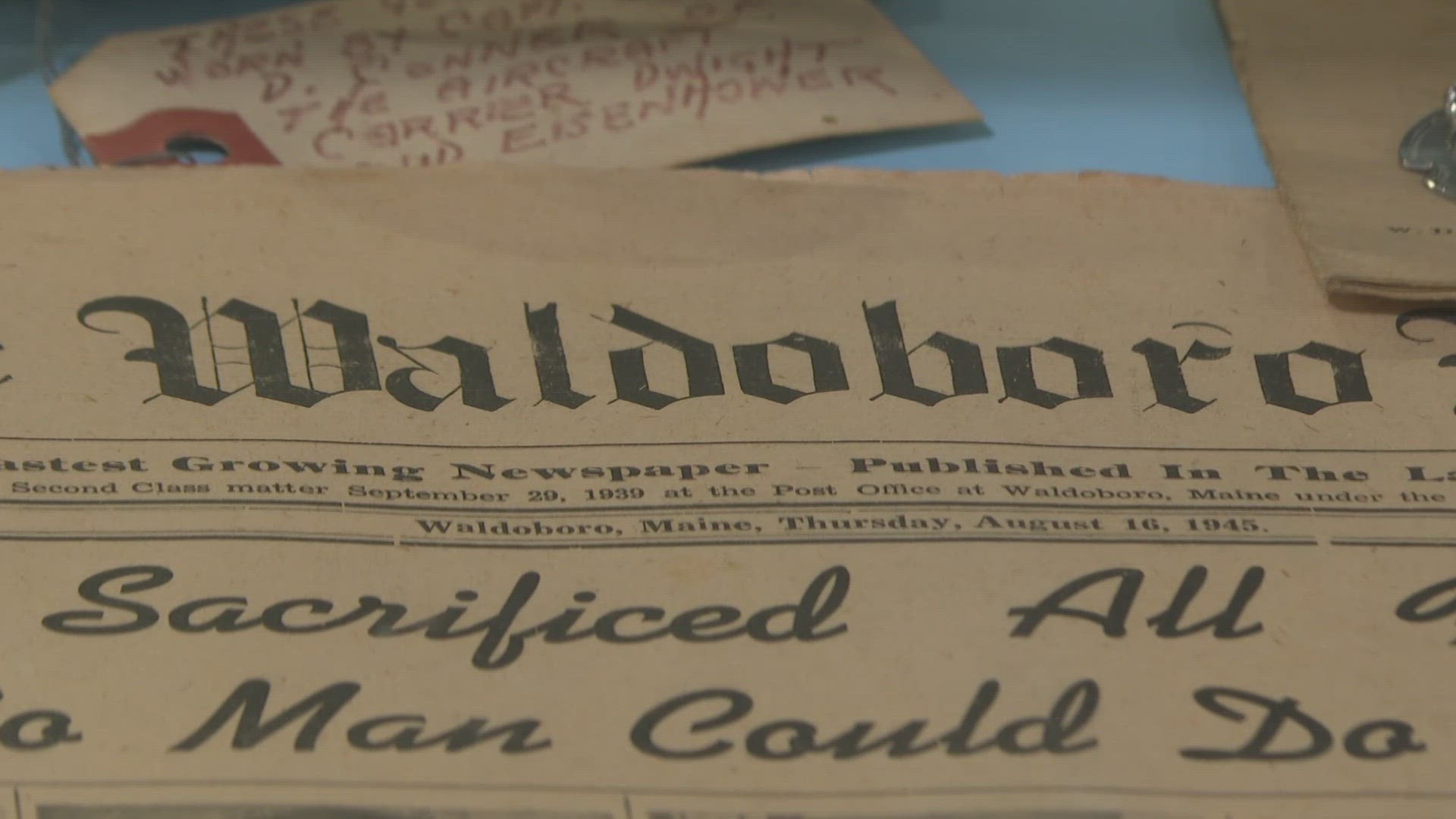WALDOBORO, Maine — Except during the short rush of eel fishing season and the daily come and go of shellfish diggers, the Medomak River is generally a quiet place, with large exposed mud flats each day at low tide.
Looking at the river, it is hard to imagine what it looked like in the early to mid-1800s, when 10 or more shipyards lined the shore, building large wooden sailing ships.
Shipbuilding was arguably the first real industry in Waldoboro, and for a time, it allowed the town to prosper.
Waldoboro celebrates its 250th anniversary this weekend, marking the date in 1773 when the town was founded.
At the Waldoboro Historical Society, they explain that there were Native Americans as well as early European settlers in the area long before then, but the real start of a town came around the 1740s when Gen. Samuel Waldo enticed a large number of Germans to leave their home country and settle in what was then called Broad Bay, but is now part of Waldoboro.
A large but simple wooden meeting house called the German Lutheran church still stands inside the old cemetery. Above the door is the date "1773." The church was originally built across the road, according to the Waldoboro Historical Society, and moved to the current site years later. But it marks the German settlement that started the town.


Like many other parts of Maine, Waldoboro was fairly wild when those settlers arrived. But, as historical society member Jim Letteney said, “it provided opportunity” for those new residents. Besides the Medomak River running to the sea and providing fish and shellfish, the freshwater portion of the river has waterfalls for power. There were thick forests and flat land for farming.
As a result, the Germans built and the town grew. Shipbuilding became a major business, and census numbers show that by 1850, Waldoboro had more than 4,000 residents. By that time, many homes had been built, as well as a downtown village of retail stores, mills, and other businesses.
"Waldoboro had a customs house," Waldoboro Historical Society Vice President Bill Maxwell said. "And to have a customs house, something was going on back in the day, a lot of money was coming through Waldoboro."
Sadly, like so many other small Maine towns, the population peak soon began to decline as people moved to the south and west for new opportunities. Over the next hundred years, the population declined dramatically.
There was, however, still opportunity. Percy Moody saw that in the late 1920s when he built small tourist cabins on what was then Route One, and soon added a hot dog stand. In 1934, the state re-routed Route One, and Moody relocated his small diner, which has since become a Waldoboro landmark. The current manager and owner of Moody’s Diner, Dan Beck, said the business is 96 years old this year.
"It is very significant to Waldoboro’s history," Beck said. "I hesitate sounding proud, because for Moody’s to be what Moody’s is, it took the community of Waldoboro to come around it and make it what it is. Part of our sustenance is tourism, but we don’t exist without Waldoboro, without the midcoast, without our regulars making it a point to be here."
In the 1930s and '40s, Dana Dow’s father built a chicken hatchery on the opposite side of town, also close to Route One. But after the chicken industry fell apart in Maine, he started the Dow Furniture store that still thrives today.
Dana Dow said Waldoboro has been a good place for his family to live—even if there is occasional upheaval.
"Waldoboro happens to be a very nice town. It doesn’t always have a great reputation, the media sometimes calls us Dodge City on the Medomak," Dow said. "I always use the Rodney Dangerfield line, we don’t get no respect. Waldoboro’s a very good town to live in."
The 250th birthday celebration will include all the usual features—a parade, music, bean suppers, and a pancake breakfast, as well as placing a time capsule.
There are many in town who remember the 1973 bicentennial. At the Waldoboro Historical Society, they hope enough will recall these events fifty years from now, to come together and celebrate Waldoboro at 300.

